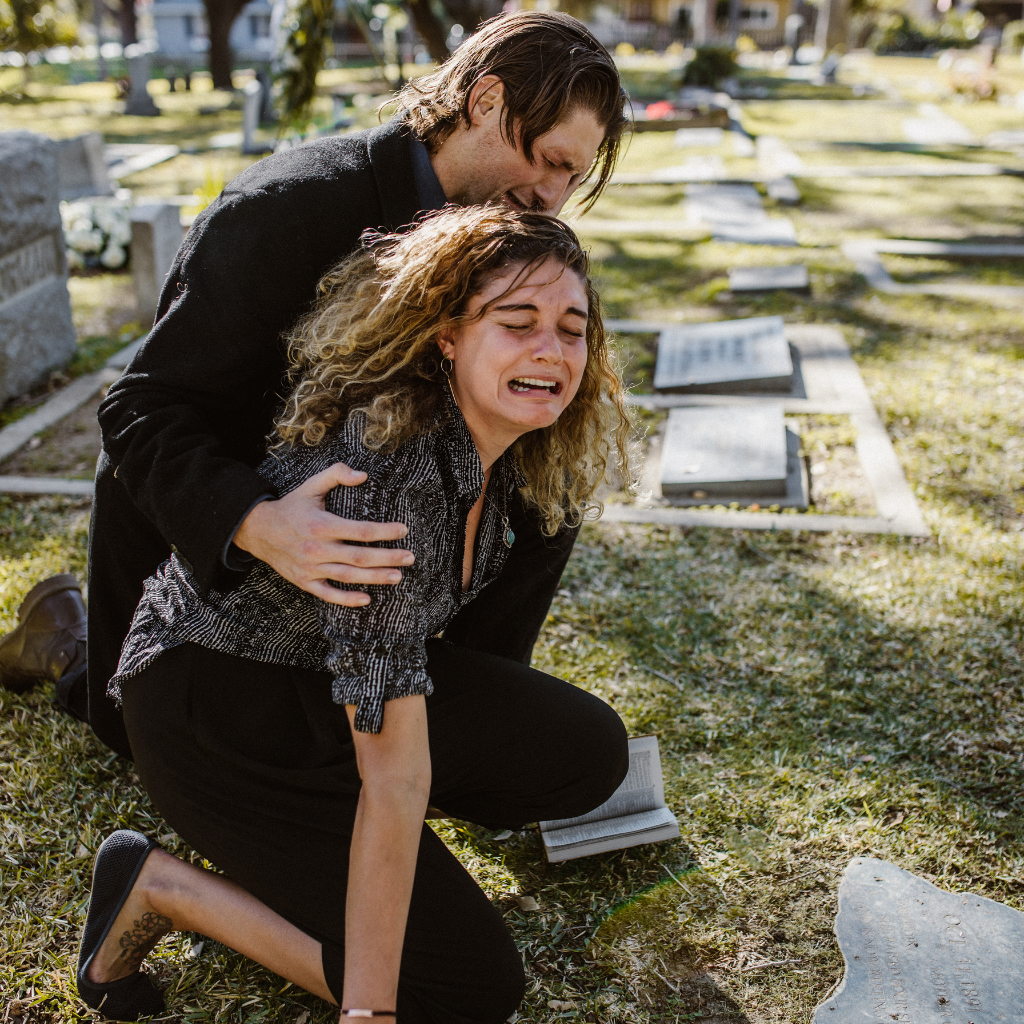Understanding Grief: How It Impacts Your Mental Health and Ways to Cope

Stefanie Solomon

Grief touches everyone at some point in life, yet it’s something we often don’t talk about until we’re in the middle of it. When we lose someone close to us, the emotional impact can feel overwhelming. It’s not just sadness—we may feel confused, numb, disconnected, or unsure how to move forward. Grief has a way of affecting not just our heart, but our mind and body too. Understanding what grief really is and how it can impact our mental health is the first step to a better mental health.
What Is Grief?
Grief is the natural emotional response to a loss—most often a death, but also divorce, job loss, or even the end of a relationship. Grief includes an array of intense feelings: guilt, anger, numbness, longing, disbelief, or relief. These responses arise because we’re adapting to a life without someone or something that mattered deeply.
Experts distinguish between normal grief and prolonged or complicated grief disorder (PGD). Normal grief usually eases over time, while PGD persists—interfering with functioning for over 12 months. Around 10–20% of bereaved adults develop PGD according to recent estimates.

What are the Stages of Grief?
While many people are familiar with the “five stages”—denial, anger, bargaining, depression, and acceptance—real-life grief moves in waves. You may skip some stages or cycle through them more than once.
- Denial: A sense of shock or numbness. It’s the mind’s way of protecting us as we begin to process what’s happened.
- Anger: Frustration about the loss or the unfairness of the situation. It’s often rooted in pain.
- Bargaining: “If only” thoughts that try to make sense of what happened or regain control.
- Depression: Deep sadness, fatigue, or withdrawal as the reality of the loss sets in.
- Acceptance: Not about “moving on,” but learning to live with the loss in a new way.
It’s important to understand that grief doesn’t look the same for everyone. Some people cycle through these emotions repeatedly. Others may feel stuck in one stage longer than expected.
Effects of Grief on Mental Health
Grief doesn’t only affect your emotions. It touches nearly every part of your life—including your mental health, your physical wellbeing, and your ability to connect with others.
Emotional Effects
Many people associate grief with sadness—and while that’s true, it’s only part of the picture. Grief can also cause:
- Feelings of guilt or self-blame
- Irritability or anger at people who are still living their normal lives
- Loneliness, even when you’re surrounded by others
Over time, for most people, these feelings begin to soften. But for others, grief can evolve into more serious mental health concerns, such as depression, anxiety, or even prolonged grief disorder (PGD)—a condition where the grief remains intense and disruptive for more than a year. People with PGD often feel stuck in their grief, unable to move forward or find moments of peace.
Cognitive and Physical Effects
Grief also affects how we think and how our bodies function. You may notice:
- Trouble concentrating or remembering things (“grief brain”)
- Difficulty making decisions
- Changes in sleep—either too much or not enough
- Fatigue or low energy, even without physical illness
- Changes in appetite
These symptoms can mimic other mental health conditions, which is why it’s so important to give yourself time and space to heal—and to seek support if these difficulties persist or worsen.
Social Impact
Grieving may lead to withdrawal. Even when people want to support, it might feel like no one truly understands. That sense of isolation can add to the emotional weight an individual is already carrying.
How to Manage Grief?
If grief is overwhelming, remember: you’re not alone—and it can be managed. Here are tailored steps for emotional relief and healing.
1. Acknowledge and Normalize Grief
Let yourself feel your feelings. Crying, anger, guilt—it’s all normal. Find ways to express emotions: journaling, art, music, walking in nature.
2. Practice the Dual‑Process Approach
Balance moments of grief (loss-oriented) with life tasks—like cooking, returning to work, or starting a new hobby. Shifting focus between the two helps rebuild normalcy .
3. Seek Social Support
Talk with trusted friends or family who can just listen. These offer validation, improved mood, reduced PTSD symptoms, and better health outcomes .
4. Nurture Daily Routines and Self-Care
Maintain healthy habits: Stick to regular sleep patterns (aim for 7–8 hrs), Prioritize balanced meals and gentle exercise, Avoid excessive caffeine, alcohol, or drugs.
5. Use Rituals and Memorials
Create rituals that feel meaningful: lighting candles, planting trees, writing letters, setting anniversaries. These help anchor loss and sustain connection.
6. Learn Coping Tools
Cognitive behavioral strategies: challenge guilt or ruminating thoughts (“I’m selfish”) with supportive self-talk.
When to Seek Professional’s Help for Grief?

Reach out for help if you have:
- Grief lasting longer than 12 months, with little to no relief.
- Intense PGD symptoms: unable to accept loss, ongoing longing, identity confusion.
- Major depression or PTSD symptoms: isolation, hopelessness, suicidal thoughts (especially in first year).
Therapy approaches proven helpful:
- Complicated Grief Therapy: combines exposure, CBT, motivational strategies. Ideal for PGD, including after suicide loss.
- Medication: SSRIs for co-occurring depression or anxiety.
- Group therapy: shared experience and mutual support matters.
Final Thoughts
Grief looks different for everyone. There’s no right way to mourn, no set timeline, and no rulebook for what healing should look like. What matters is giving yourself the space to feel, the support to cope, and the grace to move forward at your own pace. Some days will feel heavier than others—but with time, care, and connection, the weight of grief becomes easier to carry. And when it feels too much, know that help is available—and you don’t have to go through it alone.
Responsibly edited by AI
Other Blog Posts in
Animo Sano Psychiatry is open for patients in North Carolina, Georgia and Tennessee. If you’d like to schedule an appointment, please contact us.
Get Access to Behavioral Health Care
Let’s take your first step towards. Press the button to get started. We’ll be back to you as soon as possible.ecovery, together.




